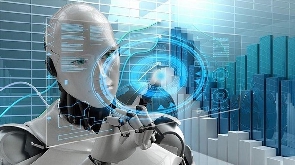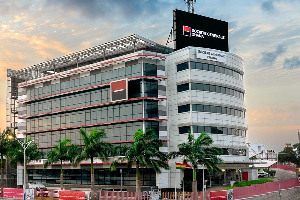Opinions of Tuesday, 2 May 2023
Columnist: Rudolph Mensah
AI won’t take your job; people who know how to use AI will take your job
Artificial Intelligence (AI) is revolutionising the way we work and live, and the impact of this technology is set to grow. From chatbots to self-driving cars, AI is transforming various industries, including healthcare. However, despite the potential benefits of AI, many people fear that this technology will replace human workers, leading to widespread unemployment.
As a tech enthusiast and aspiring healthcare data analyst, I have seen firsthand the fear and anxiety that people have about artificial intelligence taking over their jobs. However, I firmly believe that AI won't take your job, but rather people who know how to use AI will take your job. In other words, individuals who have the skills to work with AI will be better positioned to succeed in the job market as compared to those who refuse to learn and adapt to new technologies.
Let's start with the basics - what is AI? Artificial intelligence, or AI, is the ability of a computer system to perform tasks that would typically require human intelligence. These tasks can range from simple ones like recognising speech to complex ones like predicting stock prices or diagnosing diseases.
Now, let's talk about the job market. We live in an age where automation and digitalisation are rapidly changing the way we work. And while it's true that AI and automation will replace some jobs, it will also create new ones. The key is to adapt and learn how to use these technologies to your advantage.
Take the field of healthcare. With the advent of AI, there is a lot of talk about how machines will replace doctors. While it's true that AI can help diagnose diseases and recommend treatment options, it cannot replace the empathy and human touch that doctors bring to their patients. Instead, AI will augment the work of doctors, making them more efficient and effective in their work.
In healthcare, AI is already being used to help medical professionals make more accurate diagnoses, identify potential health risks, and personalise treatment plans. However, these systems require individuals who can effectively interpret data, design algorithms, and develop AI models. These skills are highly sought after in the job market, and individuals who have them will be in high demand.
For example, imagine a hospital that has implemented an AI-powered electronic health records (EHR) system. While the AI system can help medical professionals quickly access and analyse patient data, it still requires individuals who can manage the system and interpret the data. Those who have the skills to work with AI and EHR systems will be highly valued by hospitals and healthcare organisations.
The same can be said for other industries as well. For example, in the field of finance, AI can help identify fraud and predict market trends. In manufacturing, AI can help optimise production processes and reduce waste. And in customer service, AI can help automate routine tasks, freeing up human agents to focus on more complex issues.
But here's the thing - AI is only as good as the people who use it. Companies are looking for employees who not only have the technical skills to work with AI but also have the critical thinking and problem-solving skills to use it effectively. In other words, people who know how to use AI will be in high demand in the job market.
So, if you're worried about AI taking your job, my advice to you is this - don't be. Instead, embrace the technology and learn how to use it to your advantage. Take online courses, attend workshops, and read up on the latest developments in AI. By doing so, you'll be positioning yourself for success in the future job market.
In conclusion, no matter what field you find yourself in, the need to upgrade yourself to new technologies is critical. AI is not a threat but an opportunity to make your work more efficient, easy, and productive. So, don't be afraid of AI - embrace it and become one of the people who know how to use it. Trust me; it will take you places. It is time to embrace AI, learn new skills, and be part of the revolution that is shaping the future of work.













